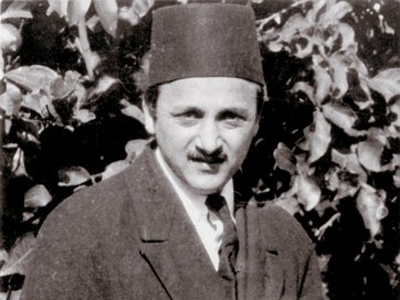
© 2014, Bahá'í International Community
History 4 - Shoghi Effendi (1897-1957)
Shoghi Effendi was born in Akka in 1897, the eldest grandson of ‘Abdu’l-Bahá. He was educated in the Middle East and for just over a year at Oxford University. He spent much of his early life helping his grandfather, in the role of secretary. When ‘Abdu’l-Bahá passed away in 1921 it was found that in his will he had named Shoghi Effendi as his successor, to be the Guardian of the Bahá’í Faith. Shoghi Effendi was only 24 years old and it came as a great shock to him when he had to leave Oxford to take on such an enormous task at such a young age. He was supported by his great-aunt, `Abdu’l-Bahá’s sister, Bahíyyih Khánum, the foremost and most distinguished woman in Bahá'í history. Shoghi Effendi spent over 35 years of unremitting labour as Guardian in guiding the Bahá’ís around the world. He died unexpectedly in 1957 and after his death the work of the Faith was directed by the Hands of the Cause until the election of the Universal House of Justice.
Ready for more?
not all...
quizzers. Try to win a coveted spot on our Hall of Fame Page.







